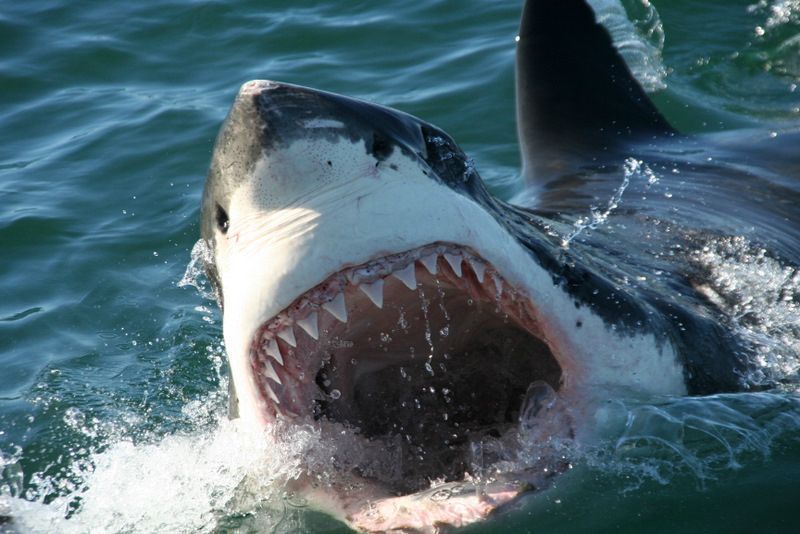
Great white sharks movement alarms South African beaches
The largest great white sharks population in the world is moving east, creating significant difficulties for beach safety in SA.

The Western Cape region is where white sharks migrate, according to the largest survey of these animals yet conducted in South Africa.
This tendency is supported by data from angler catches, shark sightings, and net entanglements on the nation’s eastern beaches.
Following tragic shark encounters, the beach safety organization Shark Spotters has expanded to Plettenberg Bay. Increased beach safety precautions are required in the impacted areas as a result of the change, which may be caused by orca predation or dwindling prey species.
DO WHITE SHARKS POSSESS ANY DANGER?
ENCA reported, “Although there is still a low danger of shark bites, shifting shark behavior may affect beach safety. Sharks can affect human activities, especially in locations where swimming and other water sports are prevalent. As populations vary, it could be required to modify current shark control tactics.
ALSO READ: A dozen Great white sharks spotted along Plettenberg coastline
“Perhaps more signage, brief beach closures, or better instruction regarding shark behavior are required.
” For instance, shark spotters in Cape Town have modified their efforts on particular beaches. In 2022, two fatal shark encounters led to the expansion of their program to Plettenberg Bay. According to anecdotal data, there are more places in the Eastern Cape where divers and surfers can meet white sharks.”
ALSO READ: Two orcas have killed at least EIGHT Great White Sharks off the coast of SA
PROVINCE WITH MOST CATCHES
KwaZulu-Natal reported having the highest annual average of these species catches, at about 32. This emphasized how important it is to consider both shark mobility and trustworthy catch records when evaluating the hazards to shark populations.
It is important to take into account any potential changes in risk when shark migration patterns migrate eastward.
There may be a higher chance of captures if white sharks, shark nets, drumlines (baited hooks), and gillnets overlap more.
